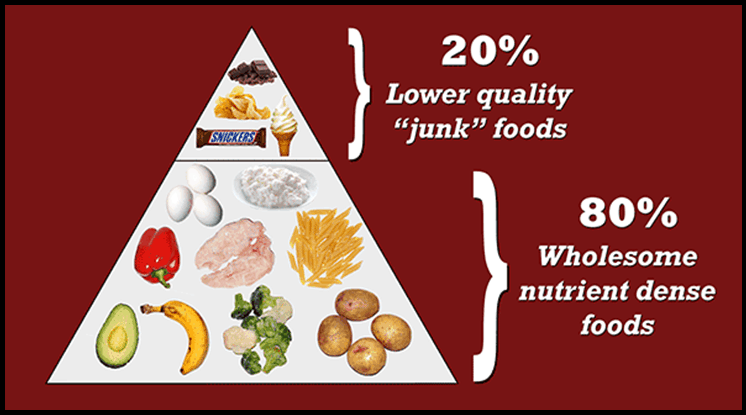
I often get asked:
“How do I maximize muscle growth but keep fat gain low on a bulk?”
Or
“I eat a lot but I´m not gaining any size. What should I do?”
My usual answer to these questions are: “Have you tried tracking your macros?”
Tracking your macros when bulking can help you reach your goals quicker. But on the other hand. it can also be an annoying extra task. This makes people wonder whether or not it’s worth tracking their macros at all.
For the last five years I’ve tried both tracking and not tracking my macros when bulking, here’s what I learned.
Should you track macros when bulking? In most cases yes! Tracking macros is great because it will help you stay on track by hitting your calories, protein, carbs and fats pretty much dead on. Tracking also allow you to enjoy your bulk more, since you can eat basically anything, as long as it fits your macros.
But there are some downsides to tracking as well, that we’ll get to later in this post. So, read on to find out why tracking your macros when bulking is typically a great thing to do, what the downside of tracking can be and if it’s really necessary for everyone to track their macros.
Table of Contents
Counting Calories vs Tracking Macros
The difference between counting calories and tracking macros is basically that while tracking calories, you´re only tracking your caloric intake and nothing else.
But when tracking your macros, you´re also tracking your proteins, carbs and fats as well. So, tracking macros is a bit more complex!
I just wanted to point this out, so you know that I’m talking about tracking macros in this post, not just calories!
Why tracking macros can be better than only tracking calories
Tracking macros can be great if you want to make quality gains and get as strong as possible. This is because, as I jsut explained, tracking macros also include your protein, fats and carbs (macronutrients).
But why it tracking macros better than just calories then?
Well, by tracking your macros you can achieve better workout performance and muscle recovery. Tracking your protein, fats and carbs can really make a big difference to your level of muscle growth during your bulk.
A lot of people say that you should only focus on eating a lot of proteins when bulking. But the thing is that proteins only repair the muscles after they are broken down, while carbs are impacting your performance.
So, tracking macros and not just calories is a great way to achieve the best and most energetic workouts.
Why Tracking Macros When Bulking Can Be Awesome
Bulking is all about building muscle, right? So in order to build muscle, you need to be in a calorie surplus, meaning that you have to eat more calories than you consume during the day.
A good calorie surplus for a lean bulk is around 200-300 calories over your maintenance.
Let’s look at an example:
Let’s say you burn a total of 3000 calories a day (your maintenance), this means that in order to be in a 200-300 calorie surplus you need to eat 3200-3300 calories each day (your bulking caloric intake). It´s that simple.
This is why tracking macros can be a awesome for gains, no matter if you´re having a hard time building muscle or an easier time building muscle.
Tracking your macros will simply give you more control over how much or how little you eat, and also over the amount of protein, fats and carbs you´re consuming during the day.
Furthermore, tracking macros can be great if you’re gaining fat easily, or if you are eating a lot without thinking about it. This is the case for me, and tracking macros have really come in handy since I always know how much I have eaten, which has prevented me from gaining excessive fat when bulking.
On the other hand, tracking macros are also great if you´re a person who tend to undereat without knowing it. Because when you’re tracking your macros, you´ll always know that you´re eating enough for muscle growth to take place.
Tracking macros can also, as opposed to popular belief, relieve stress. Sometimes when people are not in control when bulking, they become stressed and start saying things like:
“What if I have eaten too much today?”
Or
“What if I have eaten too little protein?”
People often say things like this because they have no control over what they have eaten during the day, they basically have no facts written down over what they have eaten and how much of it.
Finally, tracking your macros can also be good for your weight training performance. This is because you can control how much of each macronutrient you´ll eat.
For example, let´s say that you know that you have a heavy leg session coming up tomorrow. By tracking your macros, you can easily increase your carbs that day and maybe lower fat or protein slightly, just to get more glycogen loaded up for your leg day.
Here are a few other things that are great with tracking macros.
- You can easier enjoy social gatherings like weddings, brunches, dinners, parties etc. – This is true because you´ll be able to eat whatever you want, as long as you´re tracking and making sure you´re within your calorie range, without stressing yourself up whether you’ve eaten too much or too little.
- You can include junk food during your bulk, without gaining excess fat. – When you have a way to control your food intake you can easier include some junk food without overeating.
The Downside Of Tracking Macros When Bulking
Tracking your macros will of course require your effort, because you´ll need to weigh basically everything you eat, at least in the beginning. This in and of itself could be a potential downside of tracking.
But the more confident you become with tracking the easier you will find it to be. Eventually you´ll probably be able to just eyeball whatever you’re eating.
Another downside of tracking is that since it requires a bit of effort, it can also become a bit incorrect. Let´s say you forgot to track that you ate 2 bananas earlier in the day. And then you look at your tracking app, everything looks good and you´ve eaten 200-300 (example) over your maintenance. But you forgot to add 2 bananas from earlier in the day, which might be 200-300 calories more. This now puts you in a surplus of 400-600 calories.
Now, even though one day at this surplus wouldn’t be whole world, imagine if you forgot 200-300 calories every other day. That would quickly add up to a very large calorie surplus seen over a longer time.
Finally, tracking your macros can also make you a bit “blind”. Which means that you may accidentally include too much junk food to your bulk, which could lead to you missing out on certain important micronutrients, such as vitamins and minerals. To fix this make sure you:
Follow The 80/20 Rule

When following the 80/20 rule, there will be a much lower chance of you missing out on important micronutirnets and fibers, especially when bulking.
The 80/20 rule is simple, it basically means that you eat 80% higher quality foods, such as potatoes, meats, beans, broccoli, etc. While you can include up to 20% lower quality foods, such as burgers, pizza, snacks, etc.
Is Tracking Macros Hard?
Many people think that tracking your macros is a pain in the ass, but it really isn´t. As long as you take some time to learn it.
The first few weeks of tracking might be a bit irritating and time consuming. But when you get the hang of it, it will get much easier, and it will become more like a habit, rather than a time consuming “chore”.
The little effort it takes tracking macros will probably be worth it in the long term. Because tracking will be more accurate than just eating based on intuition and hunger. Because eating based on intuition and hunger can, as we discussed ealrier, either make you eat too much (make you unnecessary fat) or make you eat too little (make you miss out on gains).
Is Tracking Macros Really Necessary When Bulking?
If everything is going fine with your bulk right now and you’re not tracking, then I’d say no to this quesiton.
Tracking macros is something you can adapt to later on in your bulk if you want or need to. If everything is going fine with your bulk and you’re gaining a fair amount of muscles. Then tracking macros probably isn’t necessary for you.
But, if you’re not quite satisfied with your results, maybe you’re adding a lot of unnecessary fat during your bulk, or not gaining any muscles at all, then starting to track your macros is likely a wise choice!
Conclusion – Tracking Macros When Bulking?
Tracking macros can be awesome when done right, but it can also be a bit frustrating, especially in the beginning.
Tracking macros will probably not be necessary if you’re already satisfied with your results, but if you’re not quite satisfied with the results you’re getting, then you should consider tracking macros.
